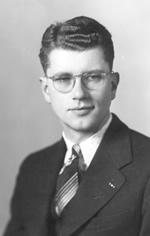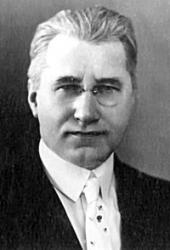Planning worship?
Check out our sister site, ZeteoSearch.org,
for 20+ additional resources related to your search.
- |
User Links
Person Results
Philipp Jacob Spener
1635 - 1705 Person Name: Ph. Jak. Spener Author of "Soll ich mich denn täglich kränken" in Deutsches Liederbuch Spener, Philipp Jakob, D.D., son of Johann Philipp Spener, keeper of the archives of Count von Rappoltstein, at Rappoltsweiler, near Colmar, in Alsace, was born at Rappoltsweiler, Jan. 13 (25), 1635. He matriculated at the University of Strassburg, in 1651, and graduated M.A. in 1653. From 1654 to 1656 he had the oversight of the studies of two sons of the Pfalzgraf Christian I. In 1659 he went to Basel, and then spent a year at Geneva. He left Geneva in 1661, and accompanied the young Count von Rappoltstein to Württemberg, staying principally at Stuttgart and Tübingen. During 1662 he gave some University lectures at Tübingen. He was then appointed, in 1663, as general preacher at Strassburg (D.D. from the University in 1664), and gave also University lectures there; preaching his farewell sermon in the Cathedral on July 3, 1666. He then became chief pastor of the Franciscan church (Barfüsserkirche, now St. Paul's), and Senior of the Lutheran clergy at Frankfurt am Main. Here, in Aug. 1670, he began to hold the Collegia pietatis or prayer meetings which are regarded as the beginnings of Pietism. During this period he published his famous Pia desideria. In 1686 he was called to become senior court preacher at Dresden, then regarded as the most important post in the German Lutheran church. Here, however, he found much in the court life which needed reformation; and finally, on the general Fast day, Feb. 23, 1689, he addressed to the Elector Johann Georg III., a respectful, but perfectly definite, remonstrance regarding his drinking habits. From this timry forth the Elector planned his removal, and with his knowledge and consent Spener at last received from the Elector Friedrich Wilhelm III., of Brandenburg, an invitation to become Probst of the St. Nicholas church, Consistorialrath, and Inspector of Schools and Churches at Berlin. He preached his first sermon in Berlin on June 21, 1691, and his last on July 1, 1704. In the last months of his life he was unable to undertake any duty. He died at Berlin, Feb. 5, 1705 (Koch, iv., 201, v., 663; Goedeke's Grundriss, vol. iii., 1887, p. 204; Herzog's Real-Encyklopädie, xiv., 500, &c).
Spener was a man of high personal character, and of unquestionable sincerity. By means of his official positions, of his intercourse with men of light and leading all over Germany, and through the extensive correspondence on spiritual matters by which he became the con¬fessor of hundreds of all ranks and classes of the German people, he greatly moulded the religious life of his times. He came into fame and influence as the leader of a great religious movement. During his latter years at Berlin he had the pleasure of seeing the University of Halle founded (formally opened in 1694), and of finding his friends and pupils, like A. H. Francke and P. Anton, appointed professors, and propagating his teachings there, and bringing on the triumph of the Pietistic movement.
To Hymnology Spener did not make important contributions. Though he wrote a great deal of verse, hardly any of it could be called poetry. His hymns derive their interest from the fact of their authorship rather than from their intrinsic value. In them we find the characteristic points of view of the Pietistic school, and they give the keynote to many of the later Pietistic hymns. They are only nine in all, and appeared in the Frankfurt ed., 1674, of Crüger's Praxis.
Those of Spener's hymns which have passed into English are:—
i. Nun ist auferstanden. Easter. First published 1674, as above, No. 264, in 10 stanzas of 10 lines, marked as by "P. J. S. D." In the Berlin Geistliche Lieder ed., 1863, No. 313. The translation is from the text of the Württemberg Gesang-Buch, 1842, No. 169, which begins, "Aus des Todesbanden." The translation is “Lo! death's bands are riven." In the British Herald, July 1866, p. 296, signed "W. T. H." Repeated in Reid's Praise Book, 1872.
ii. So ists an dem dass ich mit Freuden. For the Dying. His finest hymn. First published 1674, as above, No. 755, in 6 stanzas of 8 lines, marked, "P. J. S. D." In Bunsen's Versuch, 1833, No. 901. Translated as “Then now at last the hour is come." By Miss Winkworth, 1858, p. 218.
iii. Soll ich denn mich täglich kränken. Resignation. First pub. 1674, as above, No. 527, in 12 st. of 8 1., marked “P. J. Spener D." In Knapp's Evangelischer Lieder-Schatz, 1837 and 1865. Tr. as "Shall I o'er the future fret." By Miss Winkworth, 1869, p. 270. [Rev. James Mearns, M.A.]
--Excerpts from John Julian, Dictionary of Hymnology (1907)
Philipp Jacob Spener
Henry A. Bruinsma

1916 - 1991 Harmonizer of "REMEMBRANCE" in Psalter Hymnal (Blue) It was in Bruinsma's musical compositions that his brilliance was most displayed. “Henry’s personality was … embodied in his music: colorful, radiating charisma, magnetic in a nonverbal way,” niece Jane DeGroot said.
Bruinsma displayed musical potential even before he was considered old enough to take music lessons, said his wife, Grace Hekman Bruinsma. The preschooler would eavesdrop on his older brother’s piano lessons. After the teacher left, Bruinsma would climb onto the piano bench to practice his brother’s lesson assignment. Later on, he chose to attend Ottawa Hills High School in Grand Rapids, Mich., for its music program.
Following high school graduation in 1933, Bruinsma attended the University of Michigan for a degree in music. He stayed on to complete a Ph.D. in musicology, becoming the first musicologist to graduate from the University of Michigan. It was during his graduate work that Bruinsma wrote Scherzo on a Dutch Nursery Song. “He never lost his love for Dutch history or Dutch Reformed music,” Grace Bruinsma said.
It was also during his time at U of M that Bruinsma began taking Grace to music concerts, and in 1939 they were married.
Bruinsma began his time as a professor of music at Calvin College (1946-55). In addition to his teaching duties at the college, Bruinsma taught the first music and theology course at Calvin Seminary. He also chaired the first Conference on Liturgy of Music.
However, not long after his time at Calvin, Bruinsma decided he was being called to move from teaching to education administration. Of note is his time at Ohio State University (1959-64), where he served as the director of the School of Music. He also held the position of executive committee member of the College of Education.
Next, Bruinsma moved to what is now Arizona State University (1964-79), another notable mark in his education administration career. During that time, he served first as chair of the School of Music, then as founding dean of the College of Fine Arts. He is also known to have started the first religious studies program at Arizona State as part of the university’s interdisciplinary studies program.
Due to the amount of time he spent in education administration, much of Bruinsma’s musical compositions were never published. After his death, Grace Bruinsma contacted Gerry Bouma of Morningside College in Sioux City, Iowa. Bouma and Henry Bruinsma had met in 1969 at a Grand Rapids Christian High School concert in Chicago. “For whatever reason, Henry and Grace treated us like we were their kids,” Bouma said. Grace asked Bouma to catalog and publish the 10,000 pages of Henry’s material. Taking a semester sabbatical, Bouma began his work.
Bouma’s catalog of Bruinsma’s work can be found in the Heritage Hall Archives at the Hekman Library, Calvin College. The Archives also hosts additional works from Bruinsma’s time at Calvin.
--Excerpted from Calvin Spark, Spring 2006 issue
Henry A. Bruinsma
H. Ellis Wooldridge
1845 - 1917 Person Name: H. E. W. Arranger of "[Unto Thee my heart is sighing]" in Hymns b. 3/28/1845, Winchester; d. 2/13/17, London; English music scholar
LOC Name Authority File
H. Ellis Wooldridge
Claude Le Jeune
1523 - 1600 Person Name: Claude LeJeune Harmonizer of "[Lord, by your cross and resurrection]" in Worship (3rd ed.)
Claude Le Jeune
William Kuipers

1883 - 1933 Person Name: Rev. William Kuipers Versifier of "In My Grievous Tribulation" in Psalter Hymnal (Red) Born: 1883, Rochester, New York.
Died: 1933, Passaic, New Jersey.
Buried: Restlawn Cemetery, Grand Rapids, Michigan.
Kuipers emigrated from Friesland to America, in the late 1880s, graduated from Calvin College, Grand Rapids, Michigan, and was ordained in the Christian Reformed Church. He served at the Second Christian Reformed Church of Fremont, Michigan (1914-19); Christian Reformed churches in Oakland, Michigan (1919-23); Dennis Avenue, Grand Rapids, Michigan (1923-27); and Summer Street, Passaic, New Jersey (1927-33). He wrote a number of poems, hymns, and psalm versifications.
© The Cyber Hymnal™ (hymntime.com/tch)
William Kuipers
Alfred V. Fedak
b. 1953 Arranger of "GENEVAN 77" in Glory to God Alfred Fedak (b. 1953), is a well-known organist, composer, and Minister of Music at Westminster Presbyterian Church on Capitol Hill in Albany, New York. He graduated from Hope College in 1975 with degrees in organ performance and music history. He obtained a Master’s degree in organ performance from Montclair State University, and has also studied at Westminster Choir College, Eastman School of Music, the Institute for European Studies in Vienna, and at the first Cambridge Choral Studies Seminar at Clare College, Cambridge.
As a composer, he has over 200 choral and organ works in print, and has three published anthologies of his work (Selah Publishing). In 1995, he was named a Visiting Fellow in Church Music at Episcopal Seminary of the Soutwest in Austin, Texas. He is also a Fellow of the American Guild of Organists, and was awarded the AGO’s prestigious S. Lewis Elmer Award. Fedak is a Life Member of the Hymn Society, and writes for The American Organist, The Hymn, Reformed Worship, and Music and Worship. He was a member of the Presbyterian Committee on Congregational Song that prepared Glory to God, the 2013 hymnal of the Presbyterian Church (U.S.A.)
Laura de Jong
Alfred V. Fedak


 My Starred Hymns
My Starred Hymns


